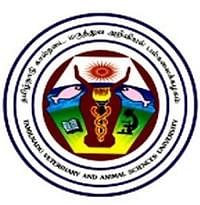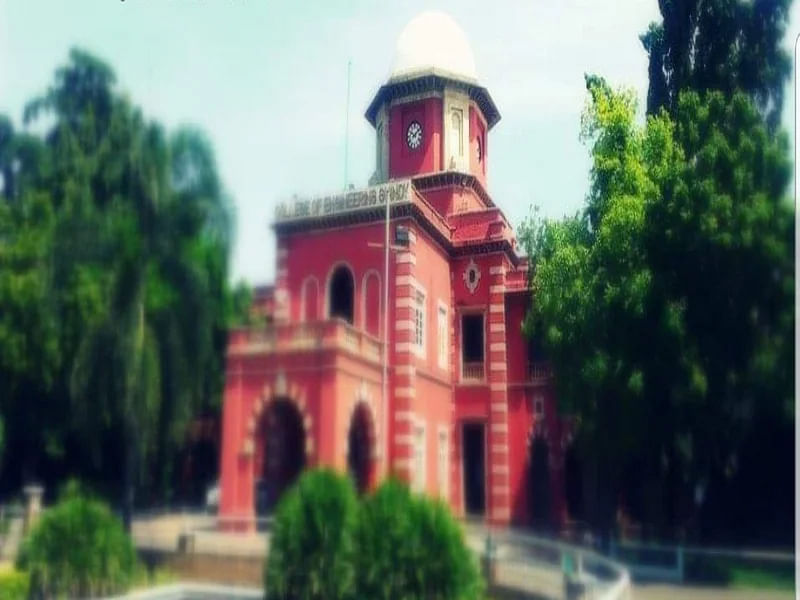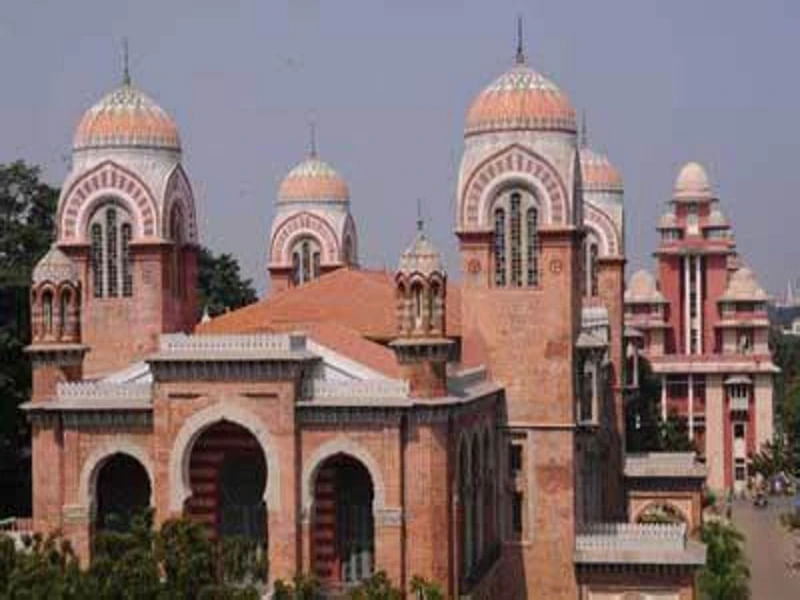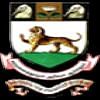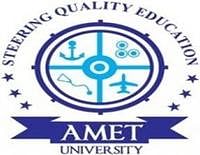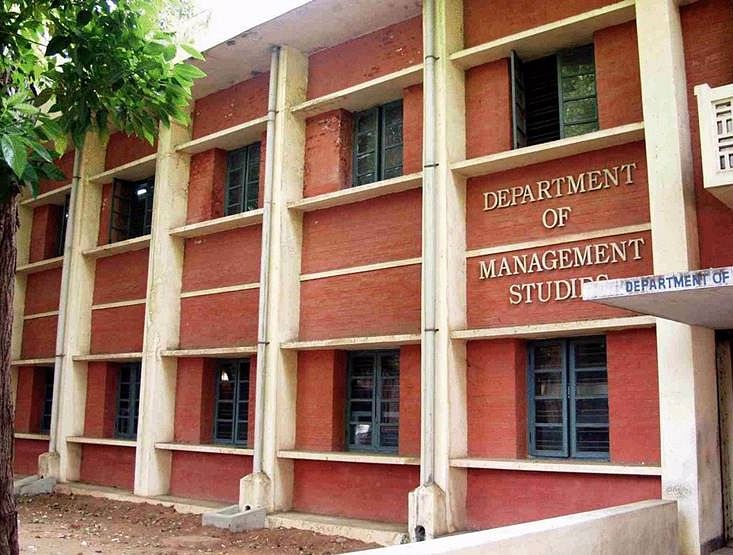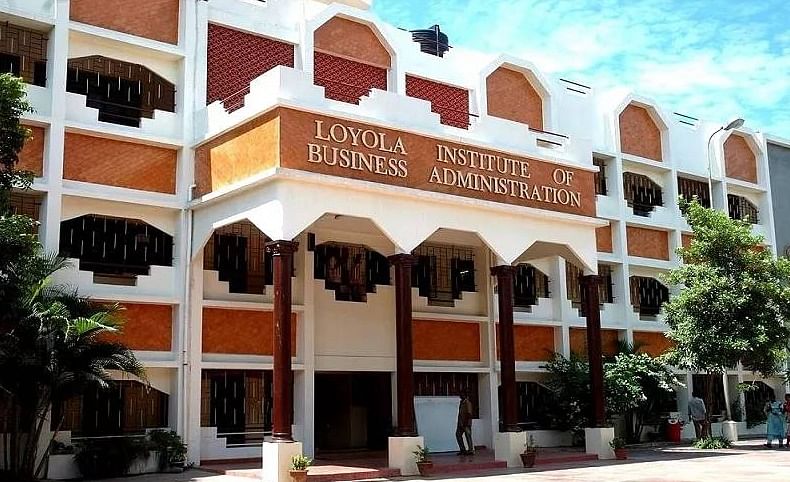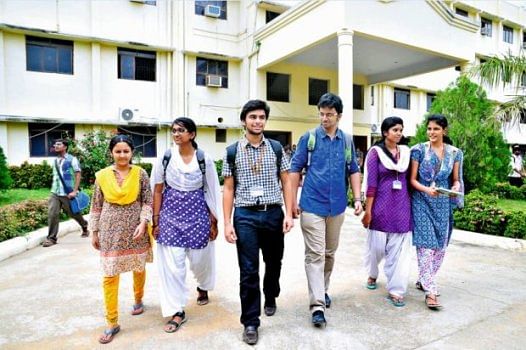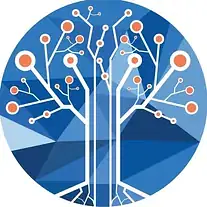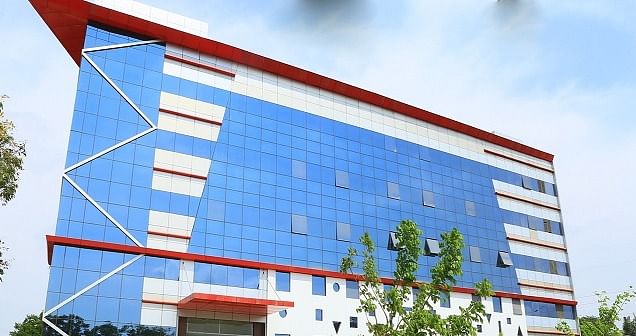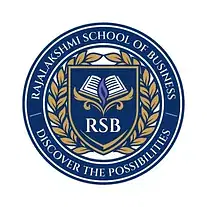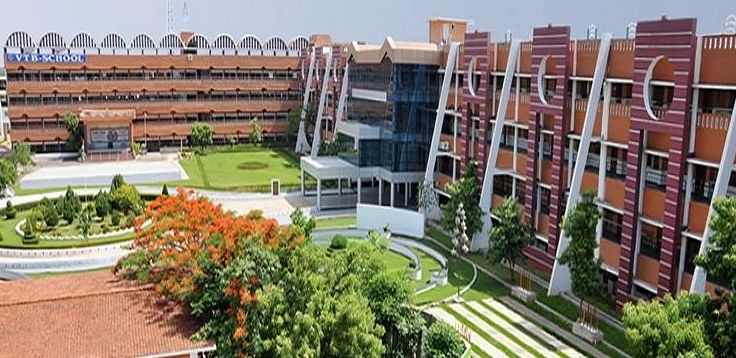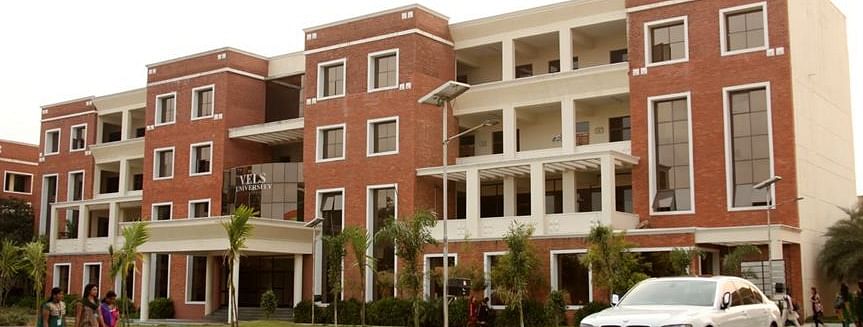Tamil Nadu Veterinary and Animal Sciences University, [TNVASU] Chennai was established in 1989 with its headquarters at Chennai. University enjoys the prestige of being the first veterinary college in the country to be affiliated to a university. TNVASU is ranked 17th in the Agriculture category by NIRF Rankings in 2024.
TNVASU is an autonomous institution governed by its Board of Management which regulates the polices of the university. The Fisheries College and Research Institute, Thoothukkudi was also made as another constituent college of this university.
Some of the key highlights of Tamil Nadu Veterinary and Animal Sciences University are mentioned below:
| Highlights of Tamil Nadu Veterinary and Animal Sciences University, Chennai | |
| Address | Madhavaram Milk Colony Road, Madhavaram, Chennai, Tamil Nadu, India |
| Year of Establishment | 1989 |
| Fee Details | TNVASU Fees |
| Recognition | ICAR |
| Contact | 91-44-25551586/ 87, 25554555/ 56 |
| Official Email | vc@TNVASU.org.in |
| Programs offered | Undergraduate, Postgraduate, Post Diploma, Management, PhD |
The motto of the University is to impart education, to ensure the advancement of learning and prosecution of research and to undertake extension to rural people in cooperation with the government departments in different branches of veterinary and animal sciences. TNVASU Chennai Admission can be done by directly visiting the campus. Admission can also be done online by visiting the official website of the university. University provides admission based on marks obtained in the previous degree.
The Planning Board and the Finance Committee of the university also support the University administration. While the Boards of Studies of Faculties and the Academic Council look after the academic pursuits of the University, the research policy of the university is watched over by the Research Council of the University.
Tamil Nadu Veterinary and Animal Sciences University Quicklinks:
- TNVASU Courses
- Committee
- Constituent Colleges
- Facilities
- Research Center
- TNVASU Placements
- Eligibility Criteria
- Admission
- Hostel Details
Tamil Nadu Veterinary and Animal Sciences University Courses:
University provides courses for undergraduate, postgraduate, doctorate and management along with various specializations which are listed below:
| Courses | Specializations |
| M.V.Sc | - |
| M.Phil | Biotechnology |
| M.Sc | Bioinformatics, Biostatistics |
| PG Diploma | Bioinformatics, Veterinary Laboratory Diagnosis, Companion Animal Practice |
| PhD | Food Technology |
| B.V.Sc AH | - |
| M.Tech | Food Technology |
| B.Tech | Food Technology, Poultry Technology, Dairy Technology |
| MBA | Food and Livestock Business Management |
| PG Diploma | Business Management |
TNVASU Committee:
The University has developed various Statutory Committee to develop the internal focus of the college. This committee not only helps in developing the college but also helps students in various fields. The Committees are listed below:
- Hospital Management Committee.
- Livestock Production Committee.
- Animal Disease Review Committee.
- Building Committee.
- Students Welfare Committee and Grievance Committee.
TNVASU Constituent Colleges:
The University has the following constituent colleges:
Madras Veterinary College, Chennai
MVC was first of all constituent veterinary colleges of TNVASU. It was started as a treatment school with only 5 students, based at Saidapet, Chennai in 1903. It was affiliated to Madras University and started offering B.V.Sc degree course in 1935. Later in 1958, it upgraded as a Southern Regional Center for Postgraduation Education and Research. College added a master of the veterinary science degree course in the year 1960. In 1976, it got affiliated to Tamil Nadu Agricultural University.
In 1989, it blossomed into a separate Veterinary University, first of its kind in the country. It is one of the oldest veterinary schools in the country. The college started growing in stature and is now recognized as a premier veterinary institute in the country and world over.
College is located at Vepery near Chennai Central in nearly 6 ha. of land. MVC consists of the main administrative block is a heritage building built on the Indo- Saracenic architecture, that currently houses the Dean's office and the education cell. Besides, there are nine blocks of buildings, housing various departments with excellent facilities for education, research, and extension.
College offers courses under both regular and distance mode. Under regular course it offers B.V.Sc and AH almost with 120 candidates, M.V.Sc in twenty-two different disciplines, Doctorate of Philosophy in twenty-two disciplines, Master in Philosophy in different specializations, Postgraduate Diploma in multiple specializations.
Under Distance mode education, the college provides the following courses:
- Diversified Poultry Production [PGDDPP]
- Veterinary Opthalmology [PGDOPH]
- Small Animal Emergency and Critical Care Medicine [PGDECM]
- Zoonosis [PGDZ]
- Small Animal Dermatology [PGDSAD]
- Regenerative Medicine [PGDRM]
- Small Animal Diagnostic Ultrasound [PGDDUS]
- Small Animal Orthopaedics [PGDORT]
The students' hostel is located near the college and has nine blocks with a capacity to accommodate 750 students. It has separate hostels and messes for boys and girls. Facilities like modernized kitchen, reading room, indoor stadium, solar water heater, and RO water are provided for the inmates.
Veterinary College and Research Institute, Namakkal
Veterinary College and Research Institute, Namakkal has been accredited by the ICAR, New Delhi in the year 2001. The "Udyog Excellence Award" to the institution was awarded for outstanding achievement through economic and social development, by the International Institute of Education and Management, New Delhi. ICAR and TNVASU's best teachers' awards were awarded for the staff members of this institute. ISO 9001: 2000 certification was awarded to this institute from the year 2004- 2006.
The College is maintained by the following departments:
- Animal Feed Analytical and Quality Assurance Laboratory
- Animal Genetics and Breeding
- Animal Husbandry Economics
- Animal Husbandry Statistics and Computer Applications
- Animal Nutrition
- Veterinary Gynaecology and Obstetrics
- Livestock Products Technology [Dairy Science]
- Education Cell
- Institutional Livestock Farm Complex
- Laboratory Animal Medicine
- Library Science
- Livestock Production Management
- Livestock Products Technology [Meat Science]
- Physical Education
- Poultry Science
- Teaching Veterinary Clinical Complex
- Veterinary Anatomy
- Veterinary and Animal Husbandry Extension Education
- Veterinary Biochemistry
- Veterinary Clinical Medicine
- Veterinary Preventive Medicine
- Veterinary Microbiology
- Veterinary Parasitology
- Veterinary Pathology
- Veterinary Pharmacology and Toxicology
- Veterinary Physiology
- Veterinary Public Health
- Veterinary Surgery and Radiology
The College provides hostel, hospital facilities, animal feed analytical and quality assurance laboratory, computer centre, library, and more things.
Veterinary College and Research Institute, Tirunelveli
Veterinary College and Research Institute, Tirunelveli was established as a third constituent college of TNVASU through the Tamil Nadu government, Animal Husbandry, Dairying, and Fisheries [AH-6] Department.
Tamil Nadu Veterinary and Animal Sciences University established the Veterinary College and Research Institute with full facilities for Veterinary Education, Research and Extension activities at Ramayanpatti in Tirunelveli, with a total area of 139.21 acres of land and with an initial budget of Rs. 12.59 crores to cater to the needs of the southern drought-prone district farmers, who mainly depend on dairy, sheep and goat rearing for their daily livelihood and to augment the livestock production activities especially the small ruminant production in the southern districts.
College provides different department and disciplines which are:
- Veterinary Microbiology
- Livestock Production and Management
- Veterinary Public Health and Epidemiology
- Livestock Products Technology
- Veterinary Anatomy and Histology
- Veterinary and Animal Husbandry Extension
- Veterinary Parasitology
- Teaching Veterinary Clinical Complex
- Veterinary Gynaecology and Obstetrics
- Veterinary Medicine
- Veterinary Surgery and Radiology
- Veterinary Pathology
- Veterinary Pharmacology and Toxicology
- Veterinary Physiology and Biochemistry
- Animal Genetics and Breeding
- Animal Nutrition
- Instructional Livestock Farm Complex [ILFC]
- Library Science
The college has maintained a guest house, non-technical staff quarters, deans house, hostel, etc.
Veterinary College and Research Institute, Orathanadu
To start the B.V.Sc A.H degree programme initially seven departments viz., Veterinary Anatomy, Veterinary Physiology and Biochemistry, Animal Genetics, Animal Nutrition, Livestock Production and Management, Instructional Livestock Farm Complex and Teaching Veterinary Clinical Complex have been established fully with required manpower, equipment and floor space as per norms of Veterinary Council of India (VCI).
College has academic block, Instructional Livestock Farm Complex Block, Livestock Products Technology block, Teaching Veterinary Clinical Complex block, Boys hostel, and Girls hostel.
College of Food and Dairy Technology, Koduvalli
The college has multiple numbers of inbuilt infrastructures like library, model dairy plant, experimental learning centre, state-level food processing training centre, fruit, and vegetable processing plant, computer laboratory, and other various laboratories, students hostel and community cattle care centre.
Colleges maintained a different number of departments which are Department of Food Processing Technology, Department of Food Process Engineering, Department of Food Safety and Quality Assurance, Department of Food Business Management, Department of Food Plant Operations.
College of Poultry Production and Management, Hosur
Indian Poultry Industry is one of the fastest-growing segments of the agricultural sector today in India. India is the world's second-largest egg producer and the fifth largest producer of broilers. Tamil Nadu is the second leading state in poultry meat production with 427.53 thousand tonnes in 2016-17 which accounts for 12.34 per cent of the poultry meat production of the country. Tamil Nadu ranks first in the country's egg production with a production of 16.68 billion eggs in 2016-17.
The college has various infrastructure which consists of Library, E-library, Poultry farm, Student Hostel, Examination hall, conference hall, etc.
It consists of several departments which are a department of poultry business management, department of poultry engineering, department of poultry management and department of poultry technology.
Post Graduate Research Institute in Animal Sciences, Kattupakkam
The Post Graduate Research Institute in Animal Sciences was originally started as "Sheep Farm" with an area of 246.69 ha. in the year 1957. It is situated 40 km south of Chennai city on Grand Southern Trunk Road. The farm had been brought under the control of the Director of Veterinary Education and Research on 01.12.1969 and was named as "Livestock Research Station" since research involves many species of livestock viz. cattle, sheep, goat, swine, and poultry. Later this farm had become a constituent unit of Tamil Nadu Agricultural University from 01.12.1976 and continues to function under Tamil Nadu Veterinary and Animal Sciences University from 20.09.1989.
Tamil Nadu Veterinary and Animal Sciences University Facilities:
University is provided with the Directorate of Student Welfare committee to maintain equality for each student and to help each student in their respective needs. Different laboratories are maintained like Poultry Disease Diagnostic Lab, Zoonosis Research lab, Vaccine Research lab, Avian Disease Lab, Animal Feed Analytical and QC Lab, Central University Lab, etc.
The computer centre is maintained on each campus individually. The library is run under every campus to help students in every need and support them in every kind. Research scholars, faculty, and scientists with a rich information resource base of about 40,000 books, 500 e-books, 100 foreign journals, 65 national journals, 25,000 back volumes, and 5 online databases almost in each campus are maintained to keep their students up to date and help them in every possible need. It also has access to about 2,800 online journals through the 'Consortium for e-Resources in Agriculture'.
Hospital facilities are also maintained under each constituent colleges. Medical facilities plus training space are provided on campus for the benefits of students which consists of the Ophthalmology Unit, Orthopaedic Unit, DelPHE workshop, Centralized Clinical Laboratory, etc.
University is provided with multiple facilities which are revealed to students. These facilities are maintained by various committees formed under different campuses. All committees are well governed by the director or vice-chancellor.
TNVASU Research Center:
Some of the major research centres of TNVASU are mentioned below:
- Poultry Research Center
- Mecheri Sheep Research Station
- University Research Farm
- Regional Research Center
- Institute of Animal Nutrition
- Central Feed Technology Unit
Tamil Nadu Veterinary and Animal Sciences University Placements:
The placement cell organizes various career guidance sessions, job fairs, talks, workshops, etc for the development of its students. TNVASU Placement cell has tied up with reputed companies who visit the university for campus placements. University has provided with a link in their official website, a candidate interested for internship and placement has to fill the form and complete the online process. The placement cell provides students with proper training. One full semester is indulged in the training period. Training includes group decisions, proper aptitude training classes, and interviews ideas are shared.
Tamil Nadu Veterinary and Animal Sciences University Eligibility Criteria:
The eligibility criteria for the courses offered by TNVASU is mentioned in the table given below:
| Courses | Eligibility |
|
B.V.Sc AH/B.Tech
|
|
| MBA/M.Tech/ M.Phil/M.V.Sc/M.Sc |
|
| PG Diploma |
|
| PhD |
|
Tamil Nadu Veterinary and Animal Sciences University Admissions:
TNVASU admission can be done online by visiting the official website of the college. For some course, the candidate has to give the Entrance Examination Test for seeking admission.
PhD:
- The degree normally requires three years of full-time study, which includes course work, research and thesis submission and is our premier research degree.
- Eligibility for admission is the possession of a Master's degree in the concerned field obtained from the recognized University.
B.V.Sc and AH:
- The degree requires five years of full-time study [nine semesters]. It includes course work in animal husbandry, para-clinical, applied veterinary science and animal husbandry economics and extension. Also, the students are exposed to field/laboratory work, small and large animal clinics besides an intensive internship program for six months to make the graduates moulded to face the challenges of animal and poultry diseases and management.
- These degrees are open to students pursuing Higher Secondary Course [10+2] with Biology or Botany and Zoology, Physics and Chemistry in the academic stream [or] Agricultural Practices / Dairy / Poultry in vocational stream. The minimum requirement of marks and reservations are as per the norms fixed by the Government of Tamil Nadu.
B.Tech:
The degree requires four years [8 Semesters] of full-time study including compulsory implant training for one semester. The course equips the students to meet the challenges faced by the Food Processing industry.
M.Phil:
This course is designed to meet the requirements of students with scientific backgrounds who are specifically interested in the study of scientific developments in Biotechnology and the applications of this knowledge, skills, and tools in the fields of molecular and biological sciences. This course will provide high-quality postgraduate training in biotechnology, which meets the needs of pharmaceutical and biochemical industries for research and development.
MBA:
MBA requires two years of full-time study, which includes course work, research and thesis submission.
Tamil Nadu Veterinary and Animal Sciences University Hostel Details:
Some of the details of the hostel facility provided at TNVASU are mentioned below:
- Separate hostels are available for boys, girls and International students on each campus.
- The students' mess facility is run on a dividend system that provides healthy food at a reasonable cost.
- The students will be accommodated in the hostels to the possible extent only, as the facilities are limited.
- A sum of INR 5000 will be collected as a hostel deposit.
- TNVASU Infrastructure are well designed for providing the best academic experience to the students.
- Well maintained and Hygenic food are given keeping in mind the health of students.
- 24*7 water facilities and security facilities are provided.
- Facilities like modernized kitchen, reading room, indoor stadium, solar water heater, and RO water are provided for the inmates.
- The daily newspaper is included on demand of students and newspaper includes of local as well as international.
- Sports facilities are provided for students to keep them healthy and wealthy. A different number of sports amenities, as well as sports clubs, are formed to encourage more number of students.
- Well maintained room with all the required facilities in it.
TANUVAS - Tamil Nadu Veterinary And Animal Sciences University Highlights 2026
| Institution Type | Public |
| Total Area (In Acre) | 319.2 |
| Construction Area (Sq. M) | 2580 |
| Year of Establishment | 1903 |
| Website | tanuvas.ac.in |
| Accredited by | ICAR |
TANUVAS - Tamil Nadu Veterinary And Animal Sciences University Rankings
| Publisher | Ranking & Year | Criteria |
| #17 in 2024 | Agriculture |
TANUVAS - Tamil Nadu Veterinary And Animal Sciences University Courses and Fee Structure 2026
Courses offered by TANUVAS - Tamil Nadu Veterinary And Animal Sciences University 2026
B.Tech [Bachelor of Technology]
Offline On Campus- Specialization:
- Food Technology Engineering
- Dairy Technology
- Production Technology
M.Tech [Master of Technology]
Offline On Campus- Specialization:
- Food Technology
MBA [Master of Business Administration]
Offline On Campus- Specialization:
- Business Management
M.Sc [Master of Science]
Offline On Campus- Specialization:
- Bioinformatics
- Statistics
M.Phil [Master of Philosophy]
Offline On Campus- Specialization:
- Biotech
B.V.Sc [Bachelor of Veterinary Science]
Offline On CampusM.V.Sc [Master of Veterinary Science]
Offline On CampusPostgraduate Diploma (PGD)
Offline On Campus- Specialization:
- Bioinformatics
TANUVAS - Tamil Nadu Veterinary And Animal Sciences University Infrastructure 2026
Facilities
- Laboratory
- Computer labs
- Library
- Medical Hospital
- Auditorium
- gym
- Cafeteria
- Hostel
TANUVAS - Tamil Nadu Veterinary And Animal Sciences University Reviews
Entrance Exams & Admissions : Eligibility is minimum is 60% in 12th for getting into Tamil Nadu Veterinary and Animal Sciences University. The entrance exam is required which is conducted by Tamil Nadu Veterinary and An
Read More
Gallery View All
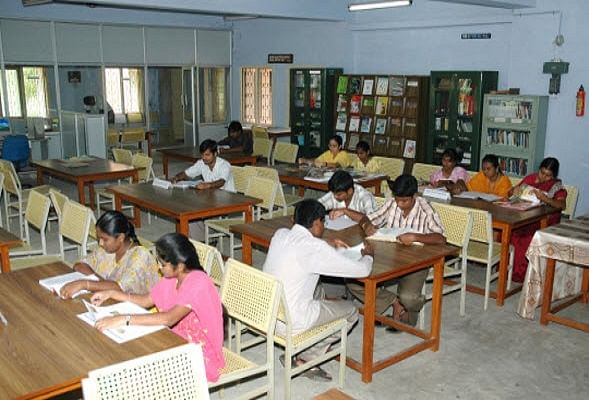
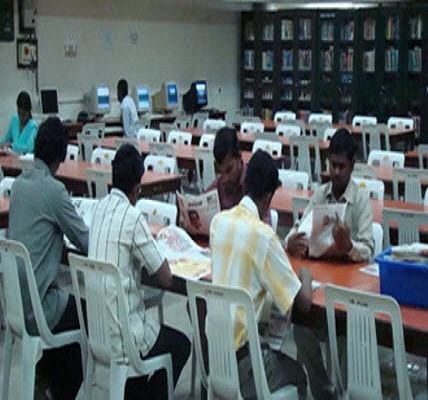
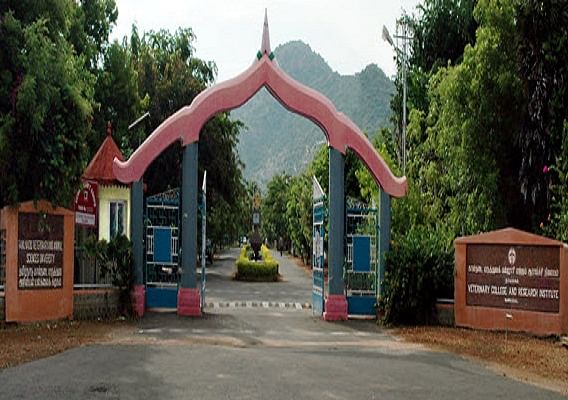
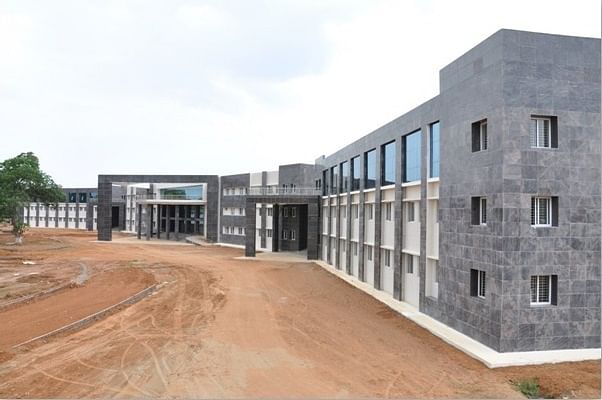
Contact Details
Contact Us
- TANUVAS - Tamil Nadu Veterinary And Animal Sciences University - Madhavaram Milk Colony, Chennai-600 051
- tanuvas.ac.in
